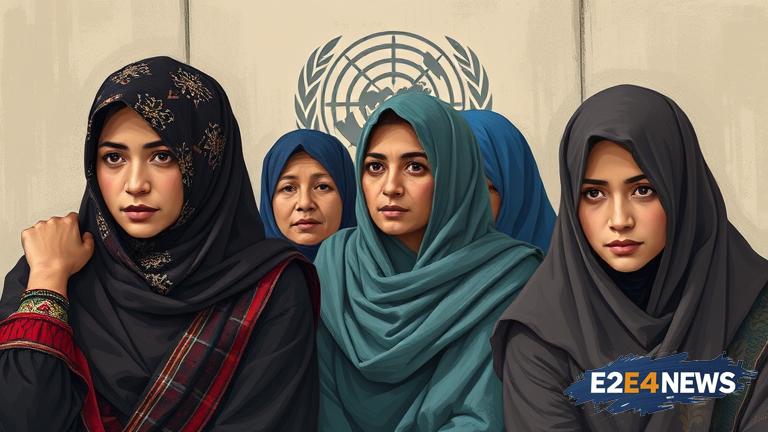The United Nations Assistance Mission in Afghanistan (UNAMA) has expressed deep concern over the recent arrests of women and girls in Kabul for alleged dress code violations. According to reports, the Taliban has been cracking down on women who do not adhere to the strict dress code imposed by the regime. The dress code, which includes wearing a burqa and covering the face, has been enforced through arrests and intimidation. UNAMA has called on the Taliban to respect the rights of women and girls, including their right to freedom of expression and assembly. The mission has also urged the Taliban to release all women and girls who have been arrested for dress code violations. The arrests have sparked widespread condemnation from human rights groups and governments around the world. The Taliban has defended its actions, saying that it is enforcing Islamic law and protecting the dignity of women. However, many have argued that the dress code is a form of oppression and a violation of women’s rights. The situation in Afghanistan has been deteriorating since the Taliban took power in August 2021, with reports of widespread human rights abuses and restrictions on women’s freedoms. The international community has been calling on the Taliban to respect the rights of all Afghans, including women and girls. Despite these calls, the Taliban has continued to impose its strict interpretation of Islamic law, including the dress code. The arrests of women and girls for dress code violations are just one example of the many challenges faced by Afghan women under Taliban rule. Women have also been banned from attending school and working outside the home, and have been subjected to forced marriages and other forms of violence. The situation is particularly dire for women and girls in rural areas, where access to education and healthcare is already limited. The international community must continue to pressure the Taliban to respect the rights of women and girls, and to work towards a more inclusive and equitable society. The UNAMA has reiterated its commitment to supporting the people of Afghanistan, particularly women and girls, and to promoting human rights and dignity. The mission has also called on the international community to provide support and assistance to Afghan women and girls, including those who have been arrested or displaced. In conclusion, the arrests of women and girls in Kabul for dress code violations are a serious concern and a violation of their human rights. The international community must take action to support Afghan women and girls and to pressure the Taliban to respect their rights and freedoms.
